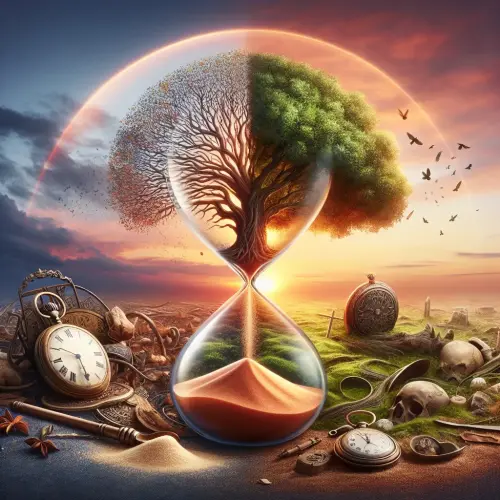As a concept that seems simple enough, time has undergone remarkable transformations throughout human history. From ancient sundials to modern atomic clocks, our understanding and perception of the flow of time have continually evolved alongside scientific advancements. In this comprehensive guide, we uncover the myriad ways in which modern time concepts have come to shape our world - for better or worse.
- Relativity: Time Dilation & Gravity’s Impact
First introduced by Albert Einstein through his theory of relativity, time dilation posits that the rate at which time passes depends on one’s speed and proximity to a gravitational source. For instance, an observer aboard a fast-moving spaceship will perceive elapsed time as slower compared to an observer stationary on Earth. This remarkable concept continues to intrigue physicists and remains integral in space exploration today.
- The Quantum Zeno Effect & Temporal Pauses
While traditional clocks rely on periodic phenomena such as the swinging of a pendulum or vibration of quartz crystals, quantum physics introduces an entirely new realm of temporal possibilities. The ‘quantum Zeno effect’ proposes that repeated observation or interaction with a system can prevent its evolution - effectively creating a “stopped” clock in the quantum realm!
- Clock Skew: Precision & Practicality
As timekeeping becomes increasingly precise, even fractions of a second now have tangible implications for society. Consider global airline schedules, synchronizing scientific instruments, or coordinating international finance - maintaining accurate, synchronized time is indispensable in today’s interconnected world. Consequently, clock skew refers to the discrepancies between multiple time sources within a network and poses challenges when striving for cohesive timekeeping on a global scale.
- The Future of Time-Traveling: Paradoxes & Possibilities
Perhaps the most tantalizing facet of modern time concepts revolves around our fascination with traversing through temporal dimensions. Although theoretical constructs like wormholes and warp drives may remain firmly within the realms of science fiction, they offer intriguing insights into the physics that govern our universe’s fabric. Moreover, paradoxes such as the grandfather paradox invite lively philosophical debate about the ethics, practicalities, and moral implications of time travel.
- The Clash of Time Perception: Subjective vs Objective
Finally, let us explore the ongoing discourse between subjective and objective conceptions of time. While many argue that our perception of time is inherently personal - influenced by factors like emotion and cognition - others assert that an absolute, quantifiable standard governs all temporal phenomena. As neuroscience continues to elucidate these contrasting theories, it becomes clear that the study of time will continue captivating inquiries into its nature and our place within it.
As humanity grapples with the profound implications of these modern concepts, one thing remains certain: our collective pursuit for understanding the mysterious flow of time will endure - forever pushing the boundaries of what we know and redefining the course of human existence
